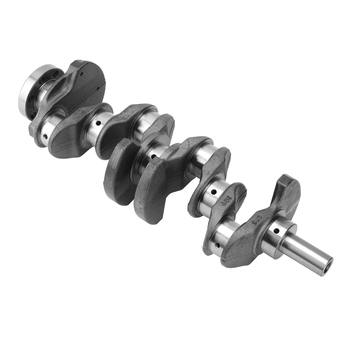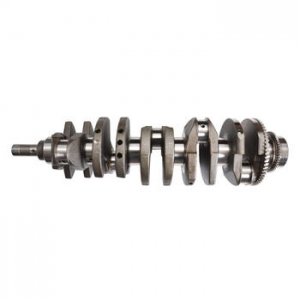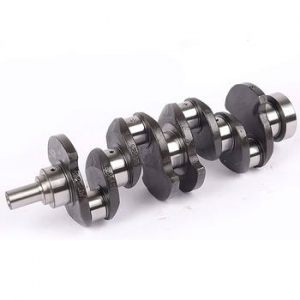The Importance of Crankshaft Balancing
To be honest, crankshaft balancing might not be the first thing that comes to mind when you think about engine maintenance. However, it is an absolutely necessary process that can make a significant difference in your engine's performance and lifespan. Frankly speaking, ignoring crankshaft balancing can lead to severe engine damage and costly repairs.
Enhancing Engine Performance
A balanced crankshaft ensures that your engine runs smoothly and efficiently. When the crankshaft is properly balanced, it minimizes vibrations, which in turn reduces wear and tear on engine components. Consequently, your engine will have increased power output, improved fuel efficiency, and a longer lifespan.
Preventing Engine Damage
On the other hand, an unbalanced crankshaft can cause excessive vibrations, leading to various engine problems. These issues may include damaged bearings, cracked engine blocks, and even complete engine failure. In my experience, it's much more cost-effective to invest in crankshaft balancing services than to deal with the consequences of engine damage.
Choosing a Reliable Service Provider
Now that we've established the importance of crankshaft balancing, the next question is: who can you trust to do the job right? After all, you don't want to risk further engine damage by entrusting your vehicle to an inexperienced or unqualified service provider.
Look for Experience and Expertise
When searching for a crankshaft balancing service, look for a company with extensive experience and a proven track record. Ideally, the service provider should specialize in crankshaft balancing and have a team of skilled technicians who are well-versed in the latest techniques and technology.
Check for Certifications and Accreditations
Additionally, make sure that the service provider is certified and accredited by reputable organizations in the automotive industry. These credentials demonstrate that the company adheres to strict quality standards and is committed to providing top-notch services.
Read Customer Reviews and Ask for References
Lastly, don't hesitate to ask for references and read customer reviews before making your decision. This will give you a better idea of the service provider's reputation and help you determine if they're the right choice for your needs.
Invest in Regular Crankshaft Balancing
In conclusion, crankshaft balancing is an extremely important aspect of engine maintenance that should not be overlooked. By entrusting your vehicle to a reliable and experienced service provider, you can ensure that your engine is running at its best and avoid costly repairs down the road. So, how often should you have your crankshaft balanced? As a general rule of thumb, it's recommended to have it checked every 30,000 to 50,000 miles or as specified by your vehicle's manufacturer. Remember, preventative maintenance is always more affordable than dealing with engine damage.
FAQs
How do I know if my crankshaft needs balancing?
Common signs of an unbalanced crankshaft include excessive vibrations, unusual noises, and poor engine performance. If you notice any of these issues, it's essential to have your crankshaft checked by a professional.
Can I balance my crankshaft myself?
While it's possible to balance a crankshaft yourself, it's not recommended unless you have extensive knowledge and experience in engine maintenance. Crankshaft balancing requires specialized equipment and techniques, so it's best to leave it to the professionals.
How much does crankshaft balancing cost?
The cost of crankshaft balancing services varies depending on the make and model of your vehicle, as well as the extent of the balancing needed. On average, you can expect to pay between $100 and $300 for professional crankshaft balancing services.
Is crankshaft balancing covered under warranty?
In most cases, crankshaft balancing is not covered under the manufacturer's warranty. However, some aftermarket warranties or extended service contracts may include coverage for crankshaft balancing, so it's essential to review your specific warranty terms and conditions.




